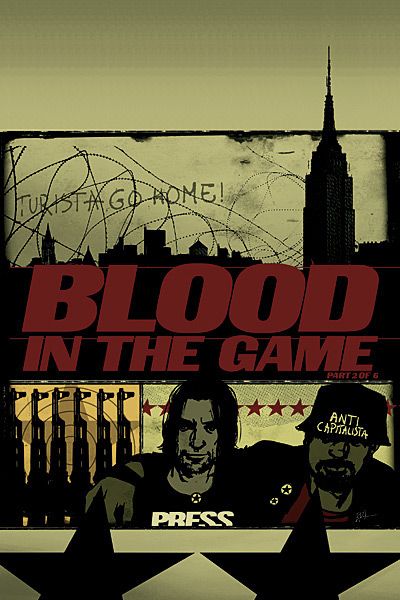Thirty issues in, I'm still not sure what this book is. It positioned itself, early on, as a war comic of a sort -- the story of a journalist covering the American civil war of the near future, starring a Manhattan in chaos. But even if some of its stronger issues have dealt with war story tropes (collateral damage, fragments from home, irresponsible slaughter), the comic seems to lack an overall war narrative. Perhaps the pieces add up to something larger, but I've read every issue and I don't know exactly who is fighting and why. I also don't know what protagonist Matty Roth wants, really. I know what he wants within each story arc -- in this issue, part two of a six-issue arc, Roth wants to help get Parco Delgado elected. But what does Roth want in the long term? What motivates him as a character? Brian Wood doesn't give clear answers, and maybe that's because Roth is an intentional cipher. His character is our way into this world, and maybe that's all he is.
Except, Brian Wood does things to make us think that Roth is more important than that. His parents are powerful and highly connected. Roth has been used as a tool by everyone he meets. Perhaps Wood is slowly establishing Matty Roth's identity by showing how he goes from being a pawn to a player, except each step forward seems to put him in yet another character's shadow. Here, he joins the Parco Delgado cause, but is that a step toward autonomy or just another case of following someone else's lead? The ambiguity is interesting, and Wood emphasizes it thematically, but after two and half years, is that all there is to Matty Roth? Just a spoiled rich kid trying to find himself? If so, that's not a compelling reason for this comic to exist.
But "DMZ" is more than that, of course. Even if Matty Roth doesn't have the strength to carry the narrative burden, the comic still has other assets. Artist Riccardo Burchielli creates vivid personalities, and even if we don't know what Matty Roth wants in the long term, we know who he is now. We know him through his gestures and body language, and Burchielli defines the other characters just as clearly. Matty Roth's scowl is defiantly impetuous while Parco Delgo's scowl is calm and knowing. This comic is about the city, but it's not about the architecture, it's about the inhabitants. And Burchielli's sharp lines and layered blacks establish these characters as well as any writer could hope.
"DMZ" is perhaps too reliant on the insubstantial Matty Roth, but at least its about something. It's not an allegory, but its thematic concerns about the convergence of media, business, and the military are relevant today. Deep and meaningfully relevant, not relevant in a way that will seem dated in a year. Brian Wood isn't afraid to play around in the world of ideas, and he clearly has something to say about them. His authorial voice is stronger than his protagonist's, though, and therein lies the main fault.

